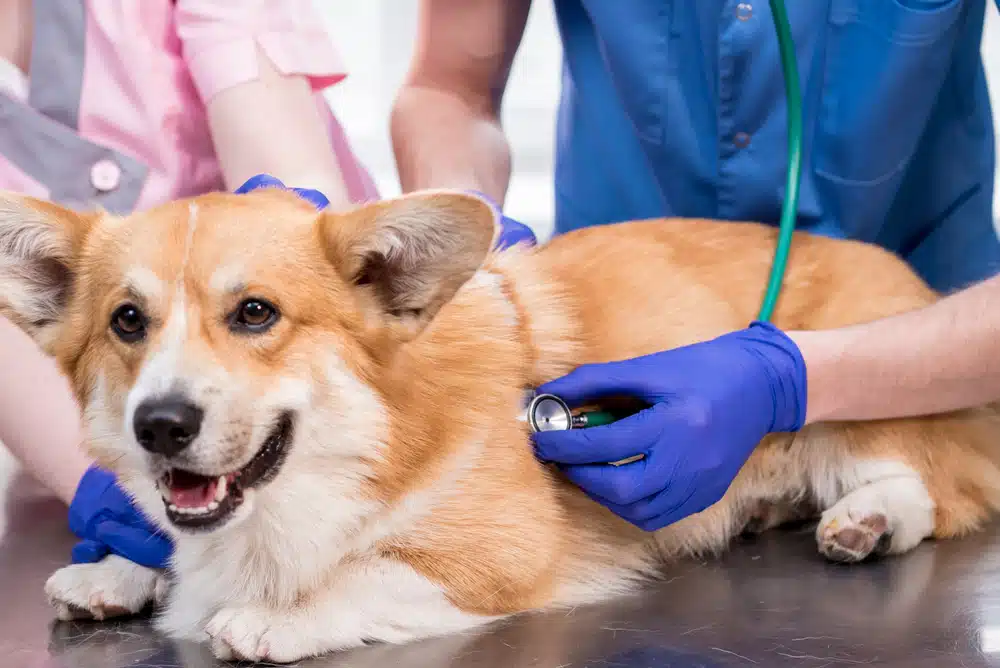Seemingly healthy pets can have clinically significant diseases, which means regular wellness screenings play an important role in diagnosing potential illnesses early and improving treatment success. Our Animal Hospital of Parkland team wants to help by explaining reasons why these visits are a critical part of your pet’s health care plan.
#1: Pets hide vulnerabilities
Many sick pets continue to behave normally until their condition is advanced. This is likely an instinctive response to mask vulnerabilities from potential predators. Most diseases have a better resolution rate when detected in the early stages, and regular wellness screenings can help detect conditions before they cause significant problems for your pet. Conditions that can be detected through a typical wellness screening physical examination include:
- Cataracts — Many pets adjust well to vision loss, especially if their sight declines gradually. Our veterinary team evaluates your pet’s eyes using an ophthalmoscope to detect ocular issues, such as cataracts, that may affect your pet’s vision.
- Enlarged lymph nodes — Enlarged lymph nodes can indicate infection, inflammation, or cancer. Our veterinary team palpates your pet’s lymph nodes under their jaw, at the base of their neck, in their armpit and groin, and at the back of their knee to ensure they are the proper size.
- Heart arrhythmia or murmur — Our veterinary team carefully listens to your pet’s chest to determine if there is a heart arrhythmia or murmur, which can indicate an underlying heart condition.
- Abdominal mass — Our veterinary team palpates your pet’s abdomen to detect abdominal masses or organs that are not the proper size.
- Joint pain — Our veterinary team evaluates your pet’s gait and manipulates your pet’s joints to determine any pain or decreased range of motion.
#2: Pets age faster than people

Pets age much more quickly than people. Cats and small dogs reach senior status at around 7 years of age, and larger dogs are considered senior when they are about 5 years of age. Senior pets are at higher risk for numerous health issues, and they should be evaluated by a veterinary professional at least every six months to ensure they remain healthy. Diagnostics performed during a regular wellness screening include:
- Complete blood count (CBC) — A CBC evaluates your pet’s red blood cells, white blood cells, and platelets. Abnormalities can indicate issues such as anemia, infection, inflammation, clotting disorders, and certain cancers.
- Biochemistry profile — A biochemistry profile evaluates several body systems to assess your pet’s overall health. Abnormalities can indicate issues such as diabetes, kidney disease, liver disease, and electrolyte imbalances.
- Thyroid panel — Senior pets are at higher risk for thyroid disease, and our veterinary team may recommend a thyroid panel to check your pet’s levels.
- Urinalysis — Our veterinary team evaluates the appearance, concentration, and content of your pet’s urine. Abnormalities can indicate urinary tract infection, diabetes, kidney disease, and urinary crystals.
- Fecal check — Our veterinary team evaluates your pet’s feces to check for parasites such as roundworms, whipworms, hookworms, coccidia, and Giardia.
- Heartworm test — Heartworms are dangerous parasites that can cause significant damage to your pet’s heart and lungs. Our veterinary team performs a heartworm test to ensure your pet’s heart is parasite free.
#3: Pet obesity is an increasing problem
Overweight and obese pets are at increased risk for several health issues, such as cancer, diabetes, kidney failure, and arthritis. Regular wellness screenings allow our veterinary team to evaluate your pet’s weight status and track their progress at each visit. A typical weight status evaluation includes:
- Weighing your pet — Our veterinary team accurately weighs your pet and records the value so we know if they are losing or gaining weight.
- Evaluating the body condition score (BCS) — Our veterinary team observes your pet and palpates them at multiple locations to determine a BCS. This tool uses a nine-point scale to describe a pet’s weight status. A BCS of one indicates the pet is extremely emaciated, and a BCS of nine indicates the pet is extremely obese. An ideal BCS is around five.
- Evaluating the muscle condition score (MCS) — Our veterinary team palpates your pet over their spine, scapulae, skull, and pelvis to assess their MCS. Obese pets frequently lose muscle mass, and evaluating their MCS and BCS at every visit is important.
If your pet is overweight or obese, our veterinary team will devise a safe weight loss strategy to help them lose the excess pounds. Conversely, if your pet has unexplained weight loss, we may recommend further diagnostics to determine the cause.
#4: Dental disease is a serious problem for pets
Dental disease is a pervasive issue for pets, and most pets have some degree of periodontal disease by the time they are 3 years of age. Our veterinary team assesses your pet’s mouth for signs such as halitosis, red or swollen gums, and plaque to determine if your pet is affected. Recommended steps if your pet has periodontal disease include:
- Professional veterinary dental cleaning — A professional veterinary dental cleaning is the only way to remove the harmful bacteria from under your pet’s gumline. Our veterinary team performs the procedure while your pet is under anesthesia to ensure the job is done thoroughly and to protect your pet from pain and stress.
- Toothbrushing — Plaque starts to accumulate about 24 hours after a professional veterinary dental cleaning, and daily toothbrushing is necessary to help prevent dental disease.
Regular wellness screenings are a critical part of your pet’s health care plan. If you would like to schedule a wellness screening, contact the Animal Hospital of Parkland team so we can ensure your apparently healthy pet isn’t hiding an underlying health issue.

